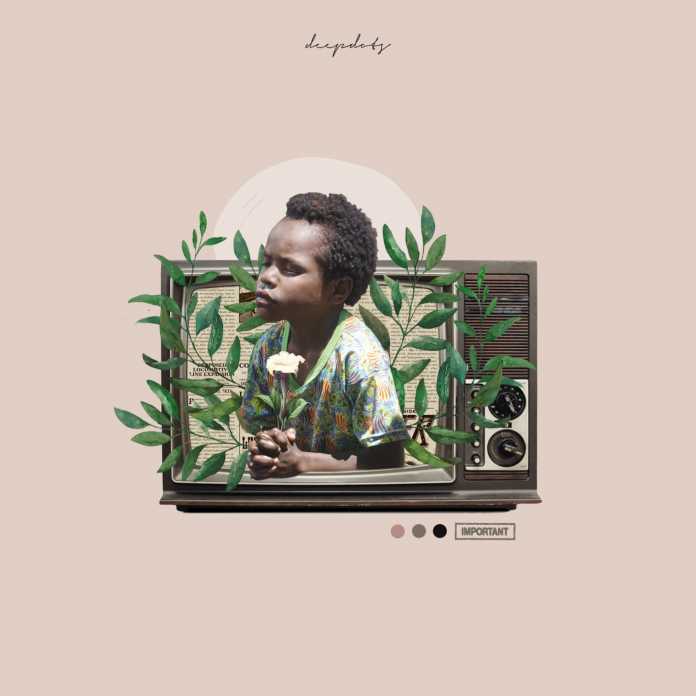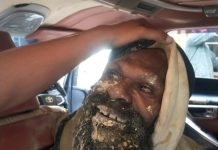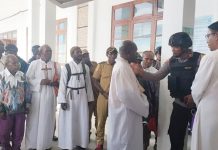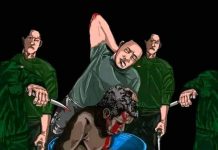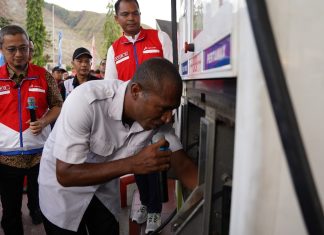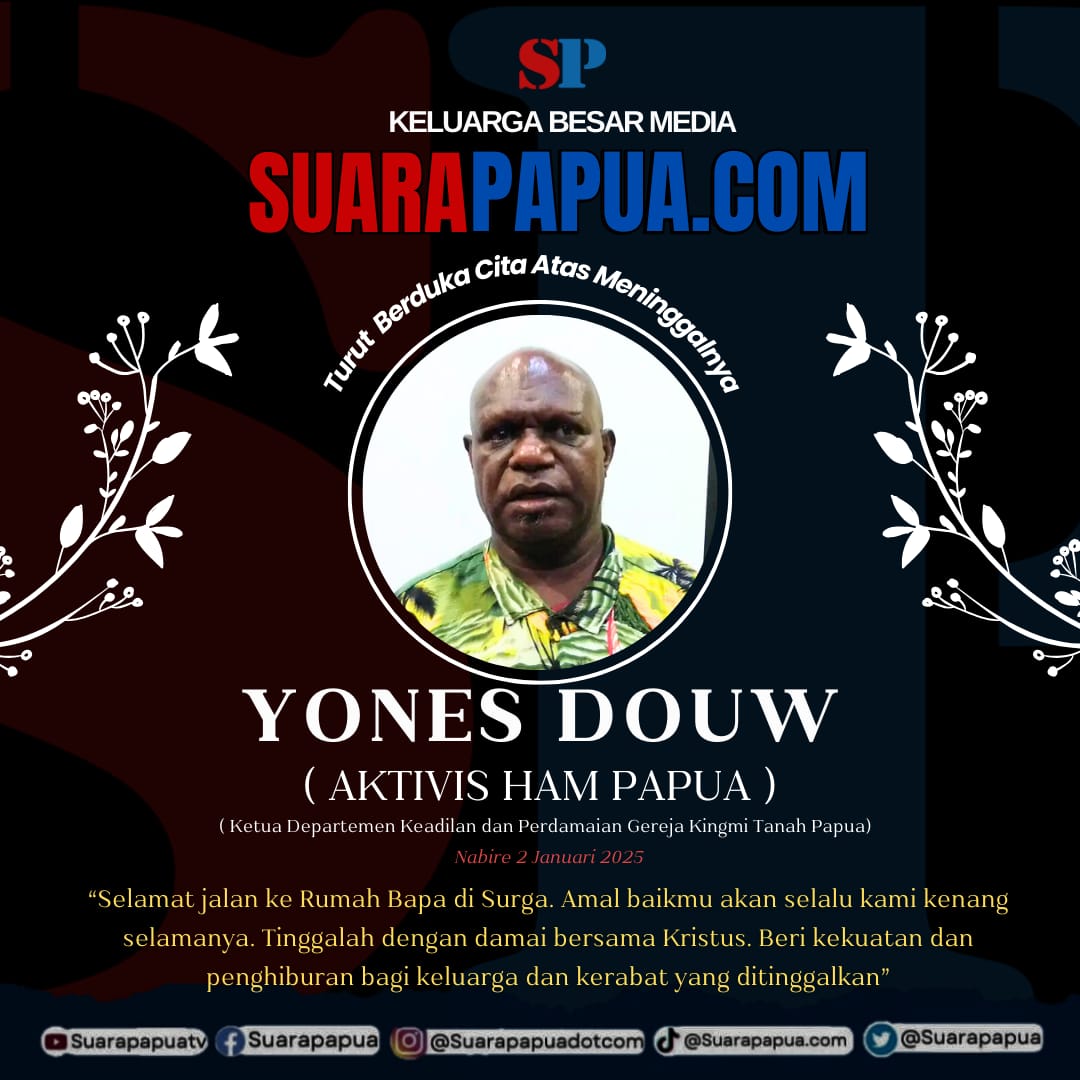“Can people just stop lecturing Papuans on how to run their movement?”
We realise that this next edition is earlier than we promised, but we thought it was important to make this statement. Black Lives Matter. We see no need to justify this stance because it just is. If you disagree, you should do some soul-searching (see our recommendations at the end of this newsletter for resources that can guide you). Having stated all that, this special edition will discuss how Papuans have taken this movement in their stride and applied it to circumstances in Papua.
The global reverberations of the #BlackLivesMatter demonstrations are undeniably connected to social media. The movement, protests against the racist legal system and the senseless deaths of black people in the apparatus of said system, found support outside of the United States. In countries like Australia, Brazil, the Netherlands and the UK, the anger of Black Americans met solidarity and gave space for marginalised communities to speak of their experience under their respective legal systems. It also gained support in Papua, which saw activists repeating the chant. It is not difficult for Papuan activists to understand how racism would affect one’s standing in the legal system; most of them had either directly experienced or witnessed it. From this solidarity and the understanding that anti-blackness transcends state borders, the hashtag #PapuanLivesMatter was born. (And as Bella reminds us, this is not the first time Papuan activists have expressed their solidarity for the movement.)
This discussion began on Twitter, but we thought we should provide an overview of it. We are not interested in inane debates on whether the circumstances in Papua are comparable to the situation in the United States; this is a movement, not an introductory chapter to a Masters or Doctoral Thesis. The activists who took up the hashtag do not need to write a manifesto on how the circumstances are comparable.
And, as a side note, can people just stop lecturing Papuans on how to run their movement??? (Gia is feeling snarky, she began this year by meeting some random Indonesian man who lectured her on how Papuans are running the independence movement wrong, quoting some colonial history falsehood even though Gia told him that she has a degree in colonial history.)
If you’re not a Papuan and you feel the need to give some criticism to the movement even though your input was not asked for, please restrain yourself. I promise you, they’ve heard all kinds of ‘constructive criticism’. There is just something about opinionated Papuans that draws the inner ‘movement critic’ in random people.
In any case, the best way to begin to understand the reverberation of the Black Lives Matter movement in Papua is by reading this amazing op-ed by Elvira Rumkabu that was run in the Jakarta Post. In an interview with Febri (our co-founder) who wrote for The Guardian, Elvira said that the so-called disparity between the political stances of NKRI Harga Mati (The Unitary State of the Republic of Indonesia is immutable) and Pro-Kemerdekaan (Pro-Papuan Independence) created by the public can be destructive for the Papuan Lives Matter campaign. People should see the movement as a fulfilment of the common or basic needs of humanity first, not in a frame of who is taking benefit from this situation (aka Pro-Papuan Independence). If both Papuans and Indonesians come together to talk about racism and humanity, that’s how the movement can move forward. But the moral of the story is to stop preaching to Papuans about how to run their own movement. Papuans and Indonesians have different memories of trauma and have been ideologically separated for 50 years. For 50 years Papuans have raised their own flag and campaigned about self-determination (Oh of course, you didn’t see it coming because it’s been censored. The people who joined the struggle were detained and killed). This did not begin yesterday or when the hashtag #PapuanLivesMatter went viral.
Another starting point is a discussion on Black Live Matters and Papua, led by Veronica Koman, with Fransisco ‘Cisco’ Mofu and Mikael Kudiai as panelists. If you understand Indonesian, you should watch the video here (thank you for the panelists and FRI-WP). Two points were made that are necessary to restate here. Let us parse this from the simpler question. The first of it is the response Veronica gave, restating the fact that Papuans identify as black people. The second is the response Cisco gave to the argument that the grievance of the Black Lives Matter movement is different from Papuan protests because it does not demand independence from the States. He responded by asking two simple questions: Is it against racism? Is it against discrimination? Then well…
Let us use the points Cisco made to jump on our soap box. The movement against racism is not necessarily to support separatists. That this statement needs to be made is already a sign of trouble. It is not the fault of the pro-independence movement that the anti racism protests can so easily slip into what sounds like a support for Papuan independence. For one, they are not the ones guilty of racism. Secondly, they are loud in their demand for dignity and respect for Papuan lives. And third, Indonesia makes it so easy. (For Indonesian readers, this article about Colonialism and Racism is a really great read. We promise)
The Indonesian military has repeatedly declined to comment on allegations of racism and abuse by its troops. But Papua police spokesman Ahmad Mustofa Kamal told Guardian that “there is no racism” in his force y’all.
This happens every time we have these small moments where we publicly discuss racism in Indonesia. We have people out here either telling Papuans that there is no racism towards Papuans, (in spite of overwhelming experiences to the contrary) and random hashtags like #Kitong/Katong/KitorangBasudara (which roughly means we are brothers). As if those statements and hashtags offer any consolation when we also have to see the violent apprehension of Obby Kogoya, knowing that it is unfortunately common. How can we speak of ending racism when we still have to entertain debates about whether racism exists?
This is perhaps why what is most troubling is the failure of most Indonesians to imagine an Indonesia that is not racist toward Papuans. (If racism doesn’t exist, why would the Indonesian military shoot Eden Armando Bebari, 19 years old, a student in Multimedia Nusantara University, while fishing? Can the Papuan people not be unlawfully killed and stigmatised as ‘an armed criminal group’ just because of their dark skin?) It is really not the fault of Papuans that people who insist on unity do not have the vision of a non-racist Indonesia. Perhaps we should have admitted defeat the moment we hear denials of racism instead of talks about how Indonesia can be less racist. The problems of the pro-Indonesian camp began there and will continue as long as they fail to devise a way to have an Indonesia that respects the dignity of Papuans and their lives. Consequently, anti-racism protests and now #PapuanLivesMatter remains elusive to cooptation from the pro-unity camp.
Perhaps that is why some Indonesians are antsy. Perhaps that is why disclaimers like ‘fighting racism does not make you pro-Papuan independence’ still needs to be made. This is not supposed to be an either or situation, but somehow enough people believe that it is, and as such calls for unity are used to counter #PapuanLivesMatter. And that is perhaps why we are subjected to talks about how #PapuanLivesMatter and #BlackLivesMatter are different. They obviously are, but solidarity is built on commonalities and empathy. What purpose does this discussion serve? People who are still on the fence on how they feel about Papuan lives? Or is this perhaps to assure people that they are not committing to separatism when they join the call for Papuan dignity?
This is not the first time Papuans are inspired by a movement elsewhere. People continue to draw from Martin Luther King Jr., Malcolm X, and Nelson Mandela, to name the most prominent. Why do we need to discuss the extent of similarities and differences between #BlackLivesMatter and #PapuanLivesMatter before deciding on solidarity? Perhaps we should go back to basics and just think about what the core of these movements are about; a demand for respect and dignity from communities that have been denied that for so long. Yet we are still stuck here, having to hear that calls for Papuan dignity is a threat to the integrity of a state that claims to love Papua, yet considers these calls subversive and treasonous.
These statements are not a series of exaggerations. We wrote them while we remember the seven political prisoners who are now in Balikpapan. They were taken to court for protesting racism, something that apparently sounded too much like treason, and the prosecutor has asked for outrageous sentences for their alleged actions. (Amnesty Indonesia is filing a petition for their freedom). We were outraged then and we still are now to think of the shady manner they were moved to Balikpapan. They were secretly transported to Balikpapan for the sake of stability. While from the beginning these prisoners were already fighting a formidable battle against a racist legal system eager to see their downfall, they are not even given the consolation of being home.
They are sobering reminders that #PapuanLivesMatter was never just a slogan. It was Papuans, reaching their hands to Black Americans, telling them that they understand what it feels like to be filled with trepidation every time someone in uniform looks at you.
And now as we are publishing this, we are watching people running from the police in Paniai on Wednesday (10/06) as things heat up there again. We heard gunshots, but we do not know more. We wrote this while we brace and hope that this will not get worse, knowing that Papuans are humans who rarely survive encounters with bullets. This is not a game and it never was.
Black lives matter. Papuan lives matter.
What we are (metaphorically) consuming
(And thanks to our beloved sister Veronika Kusumaryati, Indonesian anthropologist in Harvard University, for help us curating the reading list below)
Not to be missed this coming Monday: Some of the most prominent thinkers on Papua will be speaking with an activist from Black Lives Matter, to discuss the Balikpapan Seven —seven anti-racism activists charged with treason and rebellion. Discussion starts 10am West Papua, 8am Jakarta, 11am AEST, 9pm New York the night before: More details and sign up here. If you miss out on a spot (only 100 people allowed) you can watch on Youtube.
No other book is capable of encapsulating the experience of racism and colonialism as Frantz Fanon’s Black Skin, White Masks (1952). Fanon narrates the psychological impacts of racism and how Black people can overcome it.
Slavery is perhaps the most overt manifestation of racism. Sadia Hartman’s Scenes of Subjection: Terror, Slavery, and Self-Making in Nineteenth-Century America (1997) is written with outrage and bravery in telling this atrocity. This book is a great companion to Toni Morrison’s novels.
James Baldwin’s Blues for Mister Charlie (1963) contains the most profound reflection about race and the place of Black people in America long after slavery was abolished.
Born a Crime (2016) by Trevor Noah. Growing up in apartheid South Africa, Noah writes in extremely persuasive and brilliant prose. His take on apartheid is witty, sad, and at times, harrowing.
Filep Karma, As If we’re Half Animals: Indonesian racism in the Land of Papua (2013). Based on extensive interviews with Papuan freedom fighter Filep Karma, the book chronicles his experience of racism in Indonesia.
Ibram X. Kendi award-winning Stamped from the Beginning: The Definitive History of Racist Ideas in America (2017) and How to be an AntiRacist (2019) are two contemporary and comprehensive studies of racism.
Australian journalist John Martinkus’ new book, The Road: Uprising in West Papua about the Trans-Papua Highway and last year’s Indonesia-wide protests on Papua, was launched last month. Our friends from the Pacific Media Centre give an overview on the book.
For news updates, everyone needs to pay attention to the ongoing attacks, both virtual and physical threats, towards Indonesians and Papuans who participate as speakers or moderators in any live discussion of Papuan Lives Matter. A virtual discussion about human rights issues and the repression against Papuans’ freedom of expression held by rights group Amnesty International Indonesia on Friday was bombarded by spammers. One of its speakers was attacked while riding her motorbike. Other discussions included those initiated by Indonesian People’s Front for West Papua (FRI-WP), University of Indonesia and Lampung University. We are going to remember University of Indonesia and Lampung who disavowed the #PapuanLivesMatter discussion organised by their student body. Shoutout to UI lecturers who supported #PapuanLivesMatter discussions, and criticised their university’s disavowal.
Speaking about UI. Well, we have a specific question for UI students or anyone working with the university, what has happened to the UI-Papua Center? In 2012, Liputan 6 reported the Sabang Merauke Circle study institute, PT Freeport Indonesia, and FISIP UI launched the “Papua Center” as a centre for studies on various Papuan issues. Take a look at the launching photos here. Does the centre still exist or not? Let us know!
An article written by senior female journalist Evi Mariani on Papuan Lives Matter argues why Chinese-Indonesians must support #PapuanLivesMatter. Read more here.
Of course, we have so many articles in Bahasa Indonesia about racism written by Papuans in our website, Suara Papua. You can just check this link. All the articles you need are here.
The last is Febri’s piece on Papuan Lives Matter giving voices to young Papuans and Indonesians to speak out about the issue: Global protests throw spotlight on alleged police abuses in West Papua. Febri was moved by the death of Eden Armando Bebari, a 19 year old student, who was allegedly shot by Indonesian security forces while fishing for his family. There are so many stories about children and teenagers in West Papua being unlawfully killed. Unfortunately it’s under-reported. To make sure their names are not forgotten, it is important to keep reminding readers about their stories.
And yes, we understand that asking all this reading, watching, and listening is a lot of work. But this is a moment to educate ourselves because no such thing as knowing too much about racism.
Last from us, we want to thank you Jordinna Joaquin and the team of Kudeta Magazine who included us in this card ‘We Need to Talk About Papua’. Thanks for the support, and keep up the good work Kudeta!
That’s a wrap for this newsletter. We’ll be back two weeks from now!
Help us get the word out. Tell your friends to sign up for short but unmissable updates. (*)
NB: To get more update, subscribe us here The Voice of Papua News Letter


